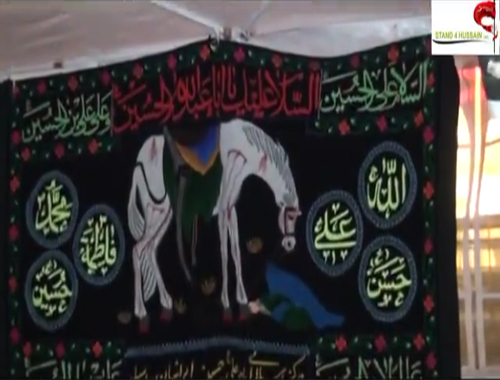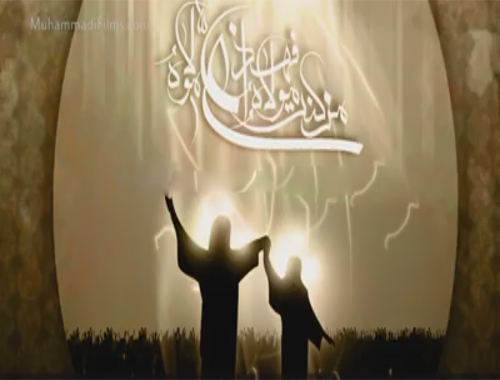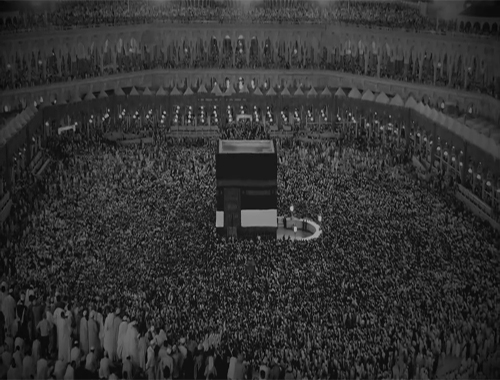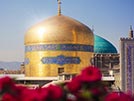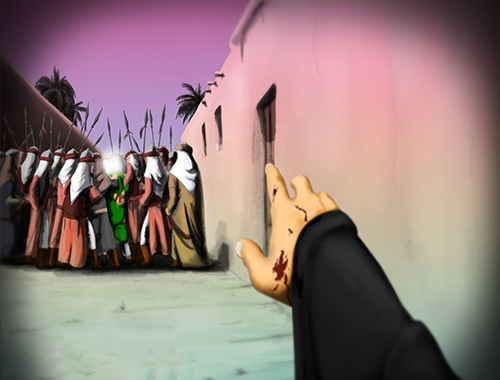Chapter 2 - The Pseudo-Mahdis
- Details
- Hits: 6220
Chapter 2
--------------------------------------------------------------------------------
The Pseudo-Mahdis
On the appointed evening friends came together at Dr. Fahimi's house. After the usual formalities and enquiries the session began. Mr. Hoshyar began to speak.
Mr. Hoshyar: There is another matter worth considering as further evidence and related to the topic about the origins of Mahdiism. These are the accounts of individuals claiming to be the Mahdi in the past, whose names have been preserved in the historical sources. These reports suggest that the subject was not only wide spread, but also well authenticated in the early days of Islam. To clarify my point for all those who are gathered here I will mention some of these pseudo-Mahdis.
Muhammad b. Hanafiyya was regarded as the Mahdi by some Muslims. He was believed to be alive and living an invisible existence in Mount Radwa. He would appear in the future and would fill the earth with justice and equity.[1] A group called Jarudis among the Zaydis believed that Muhammad b. 'Abd Allah b. Hasan was the Mahdi, and that he was in concealment. They awaited his return.[2] The Nawusi's believed that Imam Ja'far Sadiq was the Mahdi, and that he was alive and in occultation. The Waqifis believed that Imam Musa b. Ja'far had not died and was in occultation. He would appear in the future and would fill the earth with justice and equity.[3]
A group among the Isma'ilis believed that Isma'il had not died. Rather, he had been declared dead out of fear (taqiyya) of persecution. The Baqiris regarded Imam Muhammad Baqir to be alive and believed that he was the promised Mahdi. The Muhammadis believed that following the death of Imam 'Ali Naqi, the Imam was his son Muhammad. This they believed in spite of the fact that he died during his father's life time. They, furthermore, believed that he was alive and that he was the promised Mahdi.[4] The Jawaziyya believed that the twelfth Imam Hujjat b. al-Hasan had a son and that he was the promised Mahdi. The Hashimis maintained that 'Abd Allah b. Harb Kindi was the Imam. Alive but in occultation, they expected that he would appear in the future. The Mubarakis, among the Isma'ilis, regarded Muhammad b. Isma'il as a living Imam in occultation.[5]
The Yazidi faction maintained that Yazid has ascended to heaven, and will return in the future to fill the earth with justice and equity. The Isma'ilis say that the Mahdi mentioned in the traditions is the same as Muhammad b. 'Abd Allah, known as Mahdi, who became the ruler in Egypt and North Africa. To support their belief they cite the tradition of the Prophet in which he said that in the year 300 the sun would rise from the west.[6]
A group of the Imamis believed that Imam Hasan 'Askari was alive and that he was the Qa'im. He was living an invisible existence and would appear in the future and would fill the earth with justice and equity. Another group among them held that Imam Hasan 'Askari has died but would come back to life later on and would rise because the meaning of qa'im is 'to rise after death.'[7]
The Qarmatis regarded Muhammad b. Isma'il to be the promised Mahdi. They believed that he was alive and lived in Anatolia. The followers of Abu Muslim believed that Abu Muslim was the living Imam who was in concealment. A group believed that Imam Hasan 'Askari was the Mahdi and that he became alive after death. He continues to live in this state until the time comes when he will fill the earth with justice and equity.[8]
Manipulation of the Beliefs of the People
These are the names of the people who claimed to be the Mahdi in the early history of Islam. A number of ignorant people accepted their claim and regarded them to be the promised Mahdi. However, the majority of these groups have perished and there remains nothing more than their mention in the books on history. Since that time a number of individuals belonging to Hashimite or non-Hashimite clans from different regions and countries of the world have emerged claiming to be the promised Mahdi. Historically, such claims have led to insurrections and revolutions, with much bloodshed and destruction of human life.
It is possible to surmise from events related to the appearances of the false messiahs that the subject of Mahdiism and the emergence of the divine savior were among the well established religious truths among Muslims, who anxiously awaited for the appearance of the Mahdi. They also regarded his victory and the defeat of his enemy as imminent. Such expectations of the people became the major source for some ambitious and crafty individuals to manipulate their simple and pure faith -- a faith which stemmed from the teachings of the Islamic revelation -- and lay claim to the title of the Mahdi. It is likely that some of these individuals had no evil design and merely wanted to redress the wrongs committed against the people. Indeed, some of them did not even claim to be the promised deliverer. Rather, it was the common people who, due to ignorance, intolerable living conditions, and an impatience regarding their expectations about the appearance of the Mahdi, took these false messiahs to be the awaited Mahdi.
Fabrication of the Traditions
It was, unfortunately, these conditions that caused circulation of the traditions describing and praising the Mahdi and foretelling the signs of his appearance. These traditions were uncritically accepted and reported in the books. Any impartial scholar can discover these fabricated traditions by undertaking to investigate the historical accounts of the appearance of these pseudo-Mahdis and then to examine the hadith compilations that deal with the characteristics of the Mahdi. Such, for instance, is the case with the tradition in which the Prophet says:
The world will not come to an end until God sends a man from my family, whose name will be the same as mine, and whose father's name will be the same as my father's. He will fill the earth with justice and equity as it is filled with injustice and tyranny.[9]
In this hadith the Mahdi's father is introduced as possessing the name of the Prophet's father, that is, 'Abd Allah. This contradicts many traditions that mention Mahdi's father to be Hasan. Hence, it is possible to maintain that this hadith was circulated by those who regarded Muhammad b. 'Abd Allah b. Hasan to be the Mahdi. They must have added the sentence `whose father's name will be the same as my father's' to the original hadith. This is supported by the view held by Muhammad b. Yusuf in his book entitled: al-Bayan. He writes that Tirmidhi relates the same tradition in his compilation without mentioning the additional sentence 'whose father's . . .'. Abu Dawud also reports the same tradition without the additional sentence.
In another tradition recorded by Abu al-Faraj in his Maqatil al-talibiyyin Abu Hurayra is reported to have heard the Prophet saying: "Indeed, the Mahdi's name will be Muhammad b. 'Abd Allah and he will be afflicted with a speech defect."[10] This tradition is also a forgery of those who supported Muhammad b. 'Abd Allah b. Hasan's claim to Mahdiism. It is said that he had difficulty in speaking and could barely utter certain words. His followers took this defect to be a sign of the Mahdi and forged a tradition to that effect.
The 'Abbasids also fabricated traditions to bolster their claim to this eminent role predicted about the Mahdi. According to one of these traditions, Ibn 'Abbas reported from the Prophet who said to 'Abbas, his uncle: "At the End of Time there will be Mahdi among you through whom right guidance will spread and the fires of misguidance will be put out. Indeed, God began this matter with us and will conclude it through your progeny."[11] In another hadith Ibn 'Abbas reports the Prophet saying: "From us, the ahl al-bayt, will arise al-Saffah, al-Mundhir, al-Mansur and al-Mahdi. The Mahdi will be among the descendants of my uncle al-'Abbas."[12] There is little doubt that these traditions were forged by the 'Abbasids.
A tradition is related from 'Ali b. Abi Talib regarding the appearance of black banners from the direction of Khurasan. "Among these banners is God's caliph, the Mahdi."[13] This too appears to be fabricated by the 'Abbasids or by the supporters of Abu Muslim Khurasani because the Mahdi will not come from Khurasan, and the black banners were the emblem of the 'Abbasids. There are numerous other traditions that were evidently forged by the 'Abbasid pretenders to promote support for their cause.
In general, to provide legitimacy to the claims of any pseudo-Mahdi, traditions traced back to the Prophet himself were forged and circulated among the followers. Consequently, there is hardly any prominent leader for whom there were no traditions to promote his Mahdiism. The problem was that many of these individuals had died. But their followers refused to accept their death as real. Hence, traditions were fabricated to relate that their revolution would commence after their death and upon their return to life when God commanded them to do so. Al-Fadl b. Musa reports a tradition in which Imam al-Sadiq was asked by Abu Sa'id Khurasani: "Why was he (i.e., the Mahdi) known as al-Qa'im?" The Imam said: "Because he will rise after his death. He will rise for an important task, as commanded by God, the Exalted."[14]
Certainly, this hadith was fabricated by the Waqifiyya, who believed that Imam Musa Kazim had not died and would return as the promised Mahdi. Moreover, it is likely that it was fabricated by those who believed that Imam Hasan 'Askari had died, but would rise later on to establish a just society. Actually, in terms of the science of hadith, the chain of transmission is weak, since it includes a person whose reliability is in question. In a similar tradition with a slight variation Abu Sa'id asked Imam al-Sadiq: "Are al-Mahdi and al-Qa'im one and the same?" The Imam replied: "Yes." Abu Sa'id went on to ask: "Why is he known as the Mahdi?" The Imam replied: "Because he will guide to the hidden matters." "Why is he known as the Qa'im?" The Imam said: "Because he will rise after he dies, that is, dies in the people's remembering that he will rise for the great purpose."[15] It is evident that the two traditions are actually one. In the second tradition death is interpreted as a death of the memory of his name.
The belief that the Mahdi will die and then rise to launch his revolution was accepted by some people who were also responsible for fabricating traditions to support their belief. Thus, Imam Sadiq was asked: "Is there an example of qa'im (rising after death) in the Qur'an?" He said: "Yes. A passage in the Qur'an speaks about the owner of the donkey, whose death was caused by God, and then God brought him back to life."[16]
In a long tradition Mu'awiya b. Abu Sufyan reports from the Prophet the following:
The Prophet said: "After my death an island by the name of Andalusia will be conquered. Afterwards the army of disbelievers will overpower them . . . At that point a man from among the descendants of Fatima, the Prophet's daughter, will rise from the farthest region of the Maghrib. He will be the Mahdi, the Qa'im. He is the first sign of the Hour."[17]
The tradition was probably fabricated by the Isma'ilis who founded a state in the Maghreb. Many such traditions are single in transmission and, therefore, the information in them cannot be regarded as reliable. More importantly, in comparison to the numerous traditions about the Mahdi reported uninterruptedly, these traditions are not credible at all.
The Family of the Prophet and the Eleven Imams' Predictions about the Mahdi
Dr. Fahimi: What was the belief of the Family of the Prophet and the Imams regarding the Mahdi?
Mr. Hoshyar: Following the Prophet's death the subject of Mahdiism was also under discussion among the Prophet's companions and the Imams. The Family of the Prophet, as the heirs to the Prophet's knowledge and to the intricate matters concerning faith, was the most knowledgeable about the Prophetic traditions. They spoke about the Mahdi and replied to the questions that were posed to them on this subject. Let us cite some examples of these communications by them with some attention to the chronology. Although there are several traditions cited from each one of the Imams and from Fatima Zahra (peace be upon her) we will cite just one from each:
(1) Tradition Narrated by Imam 'Ali about the Future Coming of the Mahdi:
The following tradition is related by al-Asbagh who heard 'Ali b. Abi Talib say:
The promised Mahdi will emerge at the End of Time from among us. There is no Mahdi in any nation other than him being awaited.[18]
There are more than fifty traditions narrated from 'Ali b. Abi Talib in connection with the future appearance of the Mahdi and his being from among the Family of the Prophet.[19]
(2) Tradition Narrated by Fatima Zahra (peace be upon her):
Fatima Zahra told her son Husayn:
When I gave birth to you, the Prophet came to see me. He took you in his hands and said to me: "O Fatima, take your Husayn, and know that he is the father of nine Imams. From his descendants will appear righteous leaders among whom the ninth will be the Qa'im."[20]
(3) Tradition Narrated by Imam Hasan b. 'Ali:
Hasan b. 'Ali said:
There will be twelve Imams following the Prophet. Nine of these Imams will be from the progeny of my brother Husayn. The Mahdi of this umma will be among them. [21]
(4) Tradition Narrated by Imam Husayn b. 'Ali:
Husayn b. 'Ali said:
Twelve Imams will be from among us. The first among them will be 'Ali b. Abi Talib and the last will be my ninth descendant, the rightful Qa'im. Because of his blessed existence God will bring back the dead earth to life and prosperity. God will give victory to His religion over all other religions, even if this be against the liking of the disbelievers. The Mahdi will disappear from public for a while. During his occultation a number of people will abandon religion, whereas others will remain steadfast and will suffer because of their faith. This latter group will be asked tauntingly: "If your belief is true, when would your promised Imam rise?" But, remember that whoever perseveres under those unfavorable circumstances when enemies would falsify and harm them, their status will be like those who fought by the side of the Prophet in defending the religion of God.[22]
(5) Tradition Narrated by Imam 'Ali b. Husayn:
'Ali b. Husayn said:
The birth of our Qa'im will be hidden from the people in such a way that they will assert: "He has not been born at all!" The reason for his concealment is that when he begins his revolution he will have no one's allegiance on his neck.[23]
(6) Tradition Narrated by Imam Muhammad Baqir:
Muhammad b. 'Ali Baqir told Aban b. Taghlib:
I solemnly declare that the Imamate is the divine covenant that has reached us from the Prophet. The Imams after the Prophet are twelve in number of whom nine are the descendants of Husayn. At the End of Time the Mahdi will also emerge from among us who will protect the religion of God.[24]
(7) Tradition Narrated by Imam Ja'far Sadiq:
Ja'far b. Muhammad Sadiq said:
Whoever acknowledges all the Imams, but denies the existence of the Mahdi, is like the one who acknowledges all the prophets but denies the prophethood of Muhammad (peace be upon him).
Someone asked him: "Among whose descendants is the Mahdi?" The Imam responded:
The fifth progeny of the seventh Imam [Musa Kazim] will be the Mahdi. However, he will disappear. It is not proper for you to name him.[25]
(8)Tradition Narrated by Imam Musa Kazim:
Yunus b. 'Abd al-Rahman asked Imam Musa b. Ja'far: "Are you the rightful Qa'im?" He replied:
Yes, I am the rightful Qa'im. But the Qa'im who will purify the earth from the enemies of God and will fill it with justice and equity, is my fifth descendant. Since he is afraid for his life, he will be in occultation for a long time. During this period of occultation, a group will turn away from religion. But some will remain steadfast in their faith.
He went on to add:
Blessed are those Shi'a who during this period of occultation will continue to be faithful to us and remain steadfast in their loyalty to us and their hostility toward our enemies. Truly, they are from us and we are from them. They are convinced about our Imamate and we acknowledge their fealty to us. By God, blessed are they! They will be with us in Paradise.[26]
(9) Tradition Reported by Imam 'Ali b. Musa Rida:
Rayya b. Salt once asked Imam Rida: "Are you sahib al-'amr (Master of the Undertaking)?" The Imam said:
Yes, I am the Master of the Undertaking. However, I am not that Master of the Undertaking who will fill the earth with justice and equity. How can I be that Master of the Undertaking when you are witness to the prevalent weakness and helplessness? The promised Qa'im will be old in age but young in appearance when he emerges. He will be so powerful and strong that if he extended his hand to the most huge tree it would fall uprooted. And if he screamed among the mountains the rocks would be crushed into pieces. The rod of Moses and the seal of Solomon are with him. That person will be my fourth descendant. God will keep him in occultation for as long as He deems necessary. Then, He will cause him to appear, and through him God will fill the earth with justice and equity as it is filled with tyranny and oppression.[27]
(10) Tradition Reported by Imam Muhammad b. 'Ali Jawad:
Imam Muhammad Taqi Jawad told 'Abd al-'Azim Hasani:
Our Qa'im is the same as the promised Mahdi whom you should await and when he appears you should obey. He will be my third descendant. I swear by the God who sent Muhammad as the Prophet and appointed us as the Imams that even if there remains a single day on earth, God will prolong it until the Mahdi emerges and fills the earth with justice and equity as it is filled with injustice and tyranny. God takes care of His affairs overnight just as He managed the affairs of Moses in one night. Moses had gone to fetch fire for his family and he returned having been fully designated as God's prophet.
The Imam then added: "Awaiting for the deliverance to come is the best act for our Shi'a." [28]
(11) Tradition Narrated by Imam 'Ali Naqi:
Imam 'Ali Naqi said: "Following me my son Hasan is the Imam, and following Hasan it will be the Qa'im who will fill the earth with justice and equity." [29]
(12) Tradition Narrated by Imam Hasan 'Askari:
Imam Hasan 'Askari told Musa b. Ja'far Baghdadi:
I see you disputing in the matter of the Imam after me. Be aware that anyone who acknowledges the Imams after the Prophet, but rejects the Imamate of my son is like the one who has accepted the prophethood of all the prophets except the prophethood of Muhammad. The one who denies the latter is like the one who has denied all other prophets. The reason is that obedience to the last Imam is like obedience to the first Imam among us. Hence, whoever rejects the last among us is like the one who has rejected the first Imam. Let it be known to you that the occultation of my son will be so much prolonged that people will fall in doubt except for those whose faith God protects. [30]
Are these Traditions about the Mahdi Authentic?
Engineer Madani: You can follow these traditions only if they are sound and reliable. Do you regard all these traditions about the Mahdi reliable?
Mr. Hoshyar: I do not claim that all the traditions, on the subject of the Mahdi are highly reliable and that all its narrators are trustworthy. However, there are some among these that could be regarded as unquestionably authentic. These traditions, like all other traditions, include authentic, good, reliable, and weak cases. It is not necessary to go through the investigation of each one of them because, as you have noticed, these traditions are so numerous that any fair minded and unprejudiced person can refer to them with confidence. This confidence is based on the underlying theme in all of them that the existence of the Mahdi was among the well known subjects of Islam whose seeds were sown by the Prophet himself and whose detailed information was provided by the Imams. It is possible to maintain with certainty that in Islam there are few other subjects which could muster so many related traditions as can be summoned concerning the existence of the Mahdi.
Let me elaborate. From the beginning of his mission until the Farewell Pilgrimage, the Prophet had mentioned the subject of the Mahdi innumerable times. Following the Prophet, Imam 'Ali, Fatima Zahra and other prominent members of the Family, had carried on the tradition of reporting about the future coming of the Mahdi. After all they were the carriers of the Prophetic knowledge. After the death of the Prophet in the year 632 CE, Muslims were counting the days for the Mahdi to appear. This led them to recognize the false pretenders who appeared from time to time in history. These traditions were reported by all schools of Islamic thought, such as the Sunnis, the Shi'is, the Ash'ari and Mu'tazili theologians, as related by the Arab, Persian, Meccan and Medinese narrators as well as those from Kufa, Basra, Baghdad, and so on. With all these traditions, which actually number more than a thousand, is it possible for any fair minded person to cast doubt in the matter of the future coming of the Mahdi by claiming that these traditions were fabricated by the extremist Shi'is and ascribed to the Prophet?
*******
It was getting late at night and there was no time to continue the discussion any further. Hence, the decision was made to take up more discussion in the future session to be held at Dr. Fahimi's residence.
--------------------------------------------------------------------------------
Notes:
1.Shahrastani, Milal wa nihal, Vol. 1, p. 232; Nawbakhti, Firaq al-shi'a, Najaf edition, p. 27.
2.Milal, Vol. 1, p. 256; Firaq, p. 62.
3.Milal, Vol. 1, pp. 273, 278; Firaq, pp. 67, 80, 83.
4.Muhammad Karim Khurasani, Tanbihat al-jaliyya fi kashf al-asrar al-batiniyya (Najaf, 1351), pp. 40-42.
5.Milal, Vol. 1, pp. 245, 279.
6.Mir Khwand, Tarikh-i Rawdat al-safa, Tehran edition, Vol. 4, p. 181.
7.Milal, Vol. 1, p. 284; Firaq, pp. 96, 97.
8.Firaq., pp. 47, 97.
9.Fusul al-muhimma, p. 274.
10.p. 164.
11.Dhakha'ir al-'uqba, p. 206.
12.Ibid., p. 206. See also al-Sawa'iq al-muharriqa, p. 235.
13.Yanabi' al-mawadda, Vol. 1, p. 57.
14.Ithbat al-hudat, Vol. 7, p. 27.
15.Ithbat al-hudat, Vol. 7, p. 34.
16.Ibid., Vol. 7, p. 28.
17.Ibid., Vol. 7, p. 242.
18.Ithbat al-hudat, Vol. 7, p. 147.
19.This number is derived from the hadith collected in Safi Gulpaygani's Muntakhab al-athar which deals with the subject under consideration here. We shall limit ourselves to only a few examples from this compilation. Readers interested in more of these traditions should consult this important work.
20.Ithbat al-hudat, Vol. 2, p. 552. There are three more traditions here reported from Fatima Zahra.
21.Ibid., Vol. 2, p. 555. There are four other traditions reported from Imam Hasan.
22.Ibid., Vol. 2, pp. 333, 399; Majlisi, Bihar al-anwar, Vol. 51, p. 133. There are thirteen more traditions reported from Imam Husayn.
23.Bihar al-anwar, Vol. 51, p. 135. There are additionally ten traditions reported on the authority of Imam 'Ali b. al-Husayn.
24.Ithbat al-hudat, Vol. 2, p. 559. Additionally, there are sixty-six traditions related on the authority of al-Baqir.
25.Bihar al-anwar, Vol. 51, p. 143; Ithbat al-hudat, Vol. 2, p. 404. There are one hundred and twenty-three additional traditions reported on the authority of al-Sadiq.
26.Bihar al-anwar, Vol. 51, p. 151; Ithbat al-hudat, Vol. 6, p. 417.
27.Bihar al-anwar, Vol. 52, p. 322; Ithbat al-hudat, Vol. 6, p. 420. There are additionally eighteen traditions reported on the authority of Imam 'Ali al-Rida.
28.Bihar al-anwar, Vol. 51, p. 156; Ithbat al-hudat, Vol. 6, p. 419. There are five other traditions reported on the authority of Imam Muhammad Taqi.
29.Ithbat al-hudat, Vol. 6, p. 275. There are additionally five traditions related by Imam 'Ali Naqi.
30.Bihar al-anwar, Vol. 51, p. 160; Ithbat al-hudat, Vol. 6, p. 427. In addition, there are twenty one traditions reported on the authority of Imam Hasan 'Askari.




